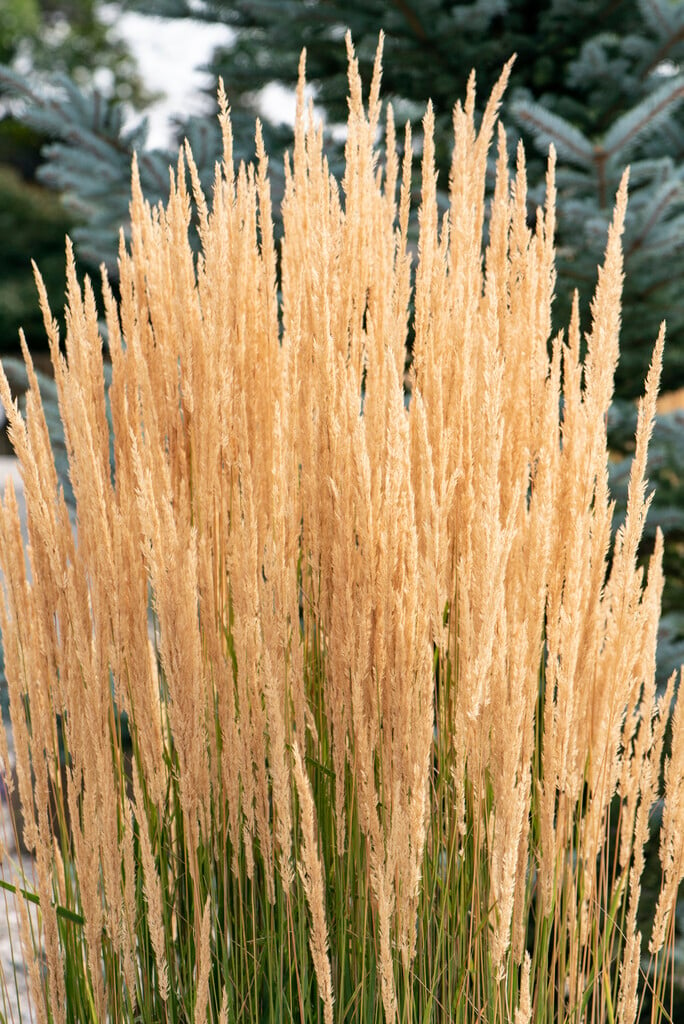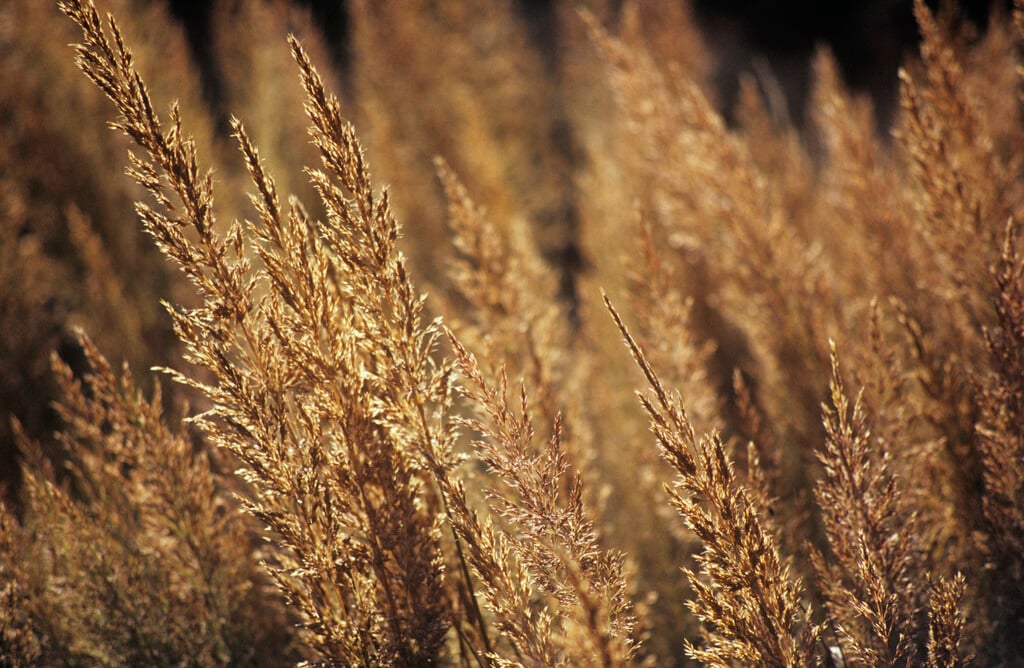Calamagrostis × acutiflora 'Karl Foerster'
feather reed grass 'Karl Foerster'
A clump-forming deciduous perennial grass with flat, arching leaves to 90cm in length, and bronze flowering panicles that fade to pale brown
Size
Ultimate height
1–1.5 metresTime to ultimate height
2–5 yearsUltimate spread
0.5–1 metresGrowing conditions
Moisture
Moist but well–drained, Well–drainedpH
Acid, Alkaline, NeutralColour & scent
| Stem | Flower | Foliage | Fruit | |
| Spring | Green | |||
|---|---|---|---|---|
| Summer | Bronze | Green | ||
| Autumn | Brown | Green | ||
| Winter |
Position
- Full sun
- Partial shade
Aspect
South–facing or North–facing or East–facing or West–facing
Exposure
Exposed or Sheltered Hardiness
H6Botanical details
- Family
- Poaceae
- Native to GB / Ireland
- No
- Foliage
- Deciduous
- Habit
- Tufted
- Genus
Calamagrostis are robust rhizomatous perennial grasses, forming tufts of linear leaves, with erect stems bearing dense branching flowering panicles in summer
- Name status
Accepted
How to grow
Cultivation
Easy to grow in most moist, humus-rich, well-drained fertile soils, but will tolerate all but the poorest soils
Propagation
Propagate by division in mid-spring
Suggested planting locations and garden types
- Cottage and informal garden
- Prairie planting
- Architectural
- Low Maintenance
- Flower borders and beds
Pruning
Cut back old stems to the ground in early spring before growth resumes
Pests
Generally pest-free
Diseases
May be affected by a rust
Love gardening
Sign up to receive regular gardening tips, inspiration, offers and more
View our Privacy Policy
Get involved
The Royal Horticultural Society is the UK’s leading gardening charity. We aim to enrich everyone’s life through plants, and make the UK a greener and more beautiful place.

